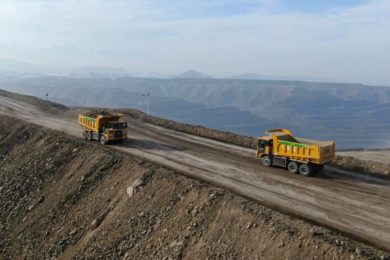Swift development and deployment of new technology capable of capturing and storing carbon dioxide (CO2) from the world’s coal-based power plants is essential for addressing climate change in an economically sustainable way, said a U.S. mining industry spokesman recently at a hearing before the House Subcommittee on Energy and the Environment. “Our current economic crisis reminds us all the more of the importance of structuring any actions responsibly so we can meet both our environmental and our economic goals,” said National Mining Association (NMA) President and CEO Hal Quinn.
Quinn told subcommittee members that the nation’s and the world’s increasing use of coal to fuel electricity generation makes it imperative that Congress accelerate the widespread use of carbon capture and storage (CCS) technology. Global greenhouse gas emissions are projected to grow by 57% in the next couple of decades, with most coming from large, rapidly growing developing countries, said Quinn. “Consequently, even if the U.S. and all advanced industrial countries stopped using coal, most of the world’s CO2 emissions sources would remain untouched,” he said.
Quinn has urged Congress to speed up CCS development, ensuring that global emissions are reduced and that coal can continue to provide affordable electricity for U.S. homes and businesses at a time of economic uncertainty and rising unemployment. The NMA feel greater federal support will be critical for timely deployment of CCS technology so that coal-based power plants, which provide half the nation’s electricity, will be able to reduce CO2 emissions without switching to fuels more costly for households and industries. Otherwise, warned Quinn, a sharp drop in coal consumption could have a devastating effect throughout the U.S. coal community, from which it would be very difficult to recover, even with CCS technology available in the future.
This ‘valley of death’ scenario can be avoided, he said, if Congress harmonises the deadlines for reducing emissions with the commercial availability of CCS technologies. Expediting CCS development will be costly, said Quinn, but it will be up to a third less than not making the effort, according to the UN’s Intergovernmental Panel on Climate Change. He said climate change policy is a responsibility of our elected representatives, and pledged NMA’s continued cooperation with Congress and the administration to find solutions that result in the lowest cost to American families and businesses.
For the full statement of Quinn’s testimony, see www.nma.org/pdf/cong_test/030909_quinn.pdf.








